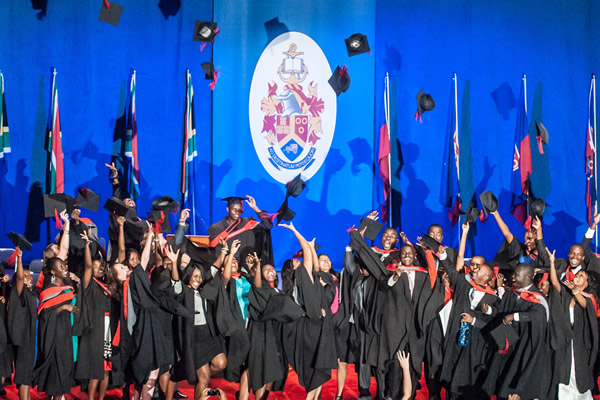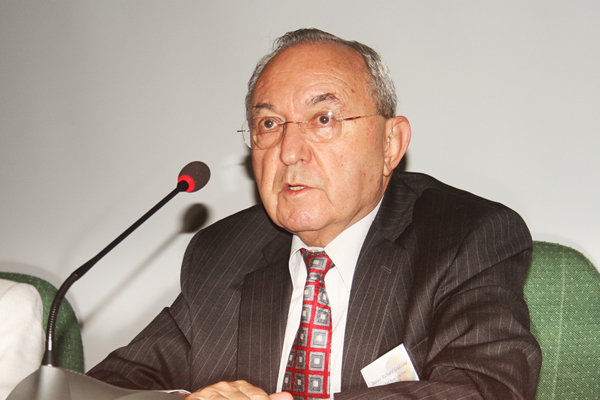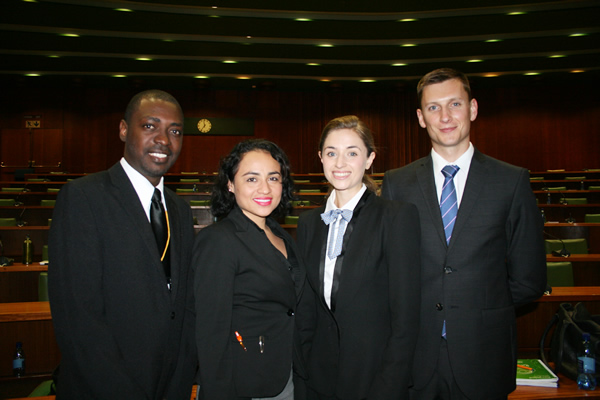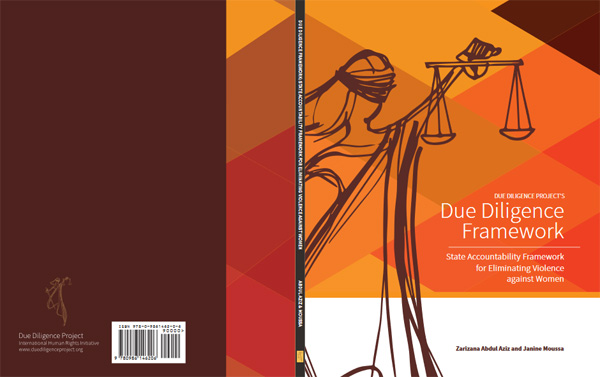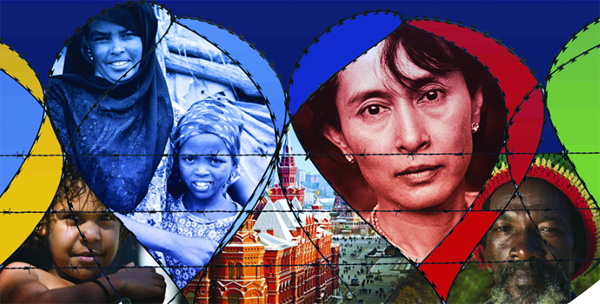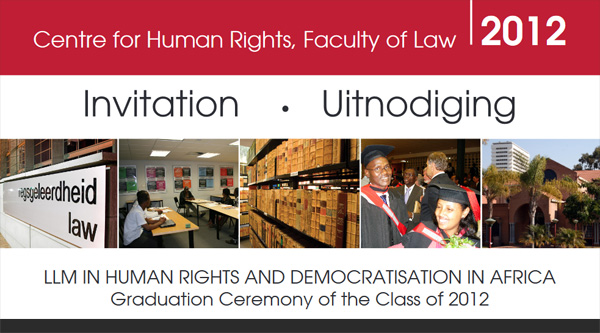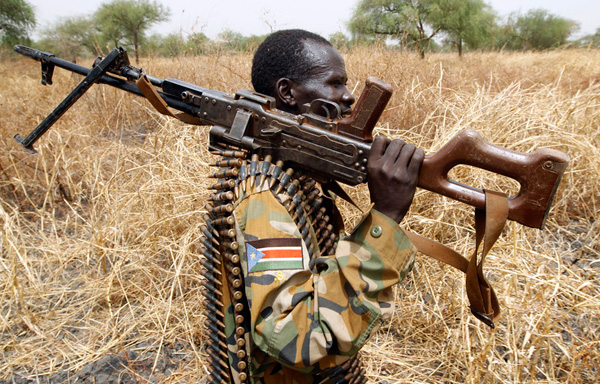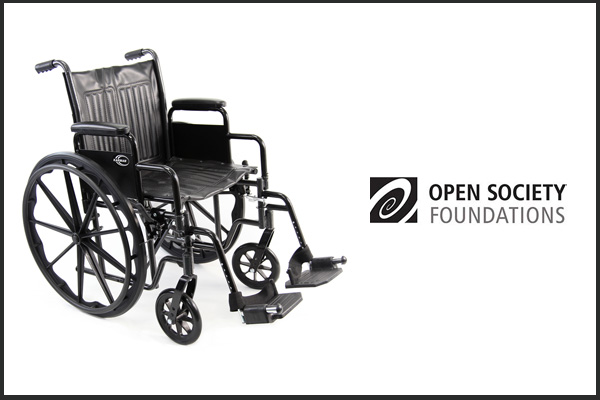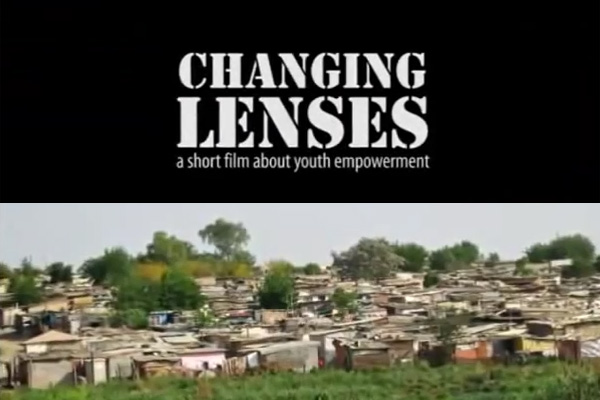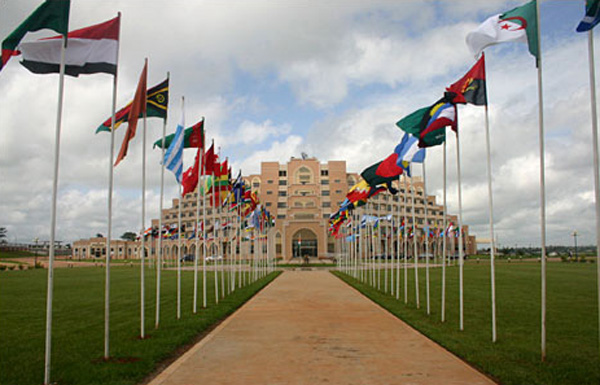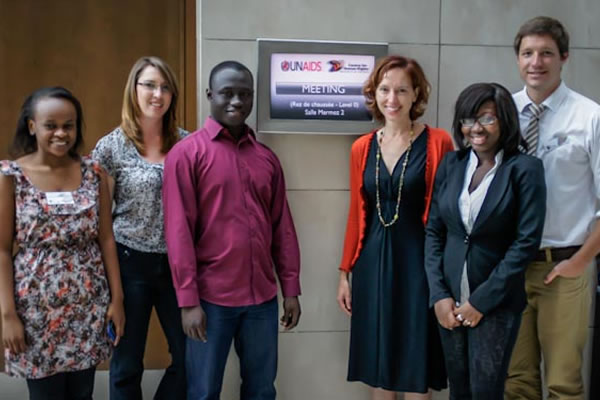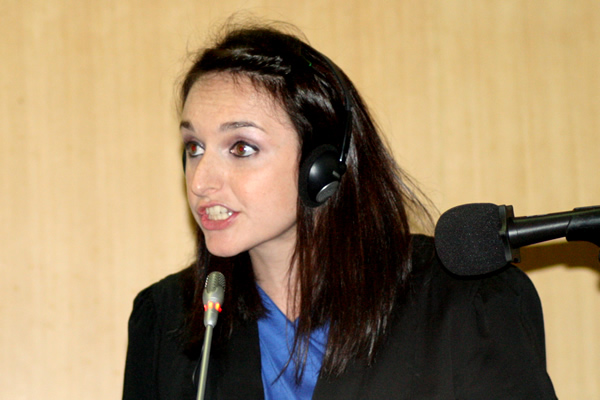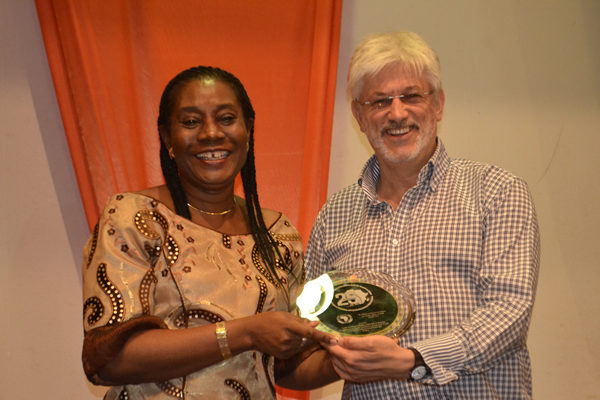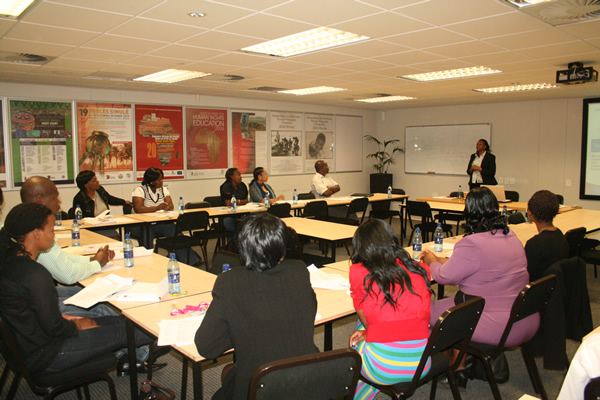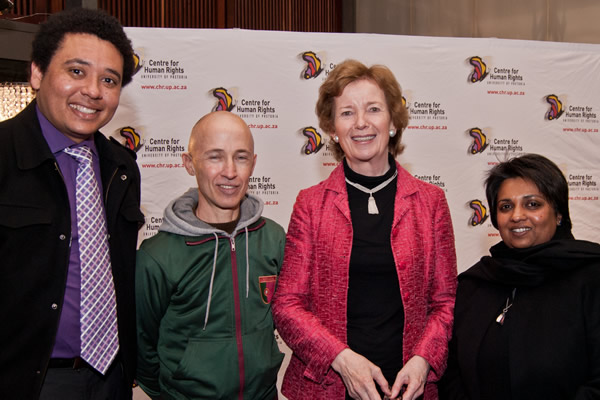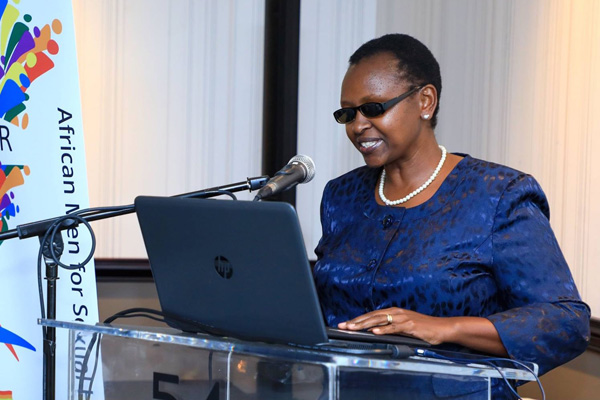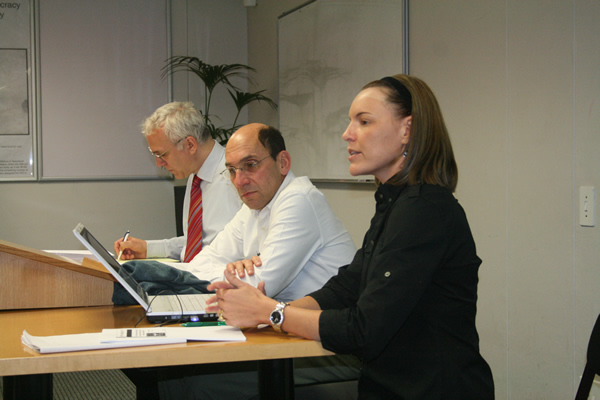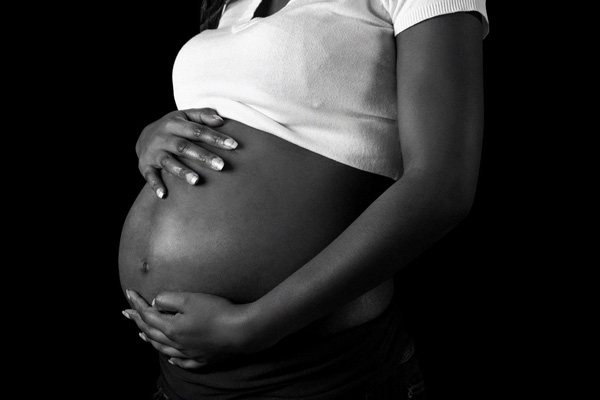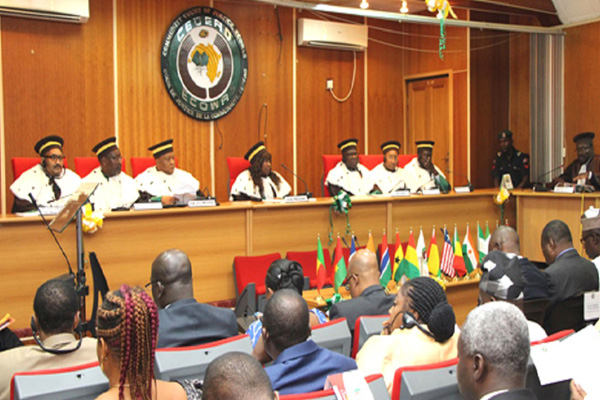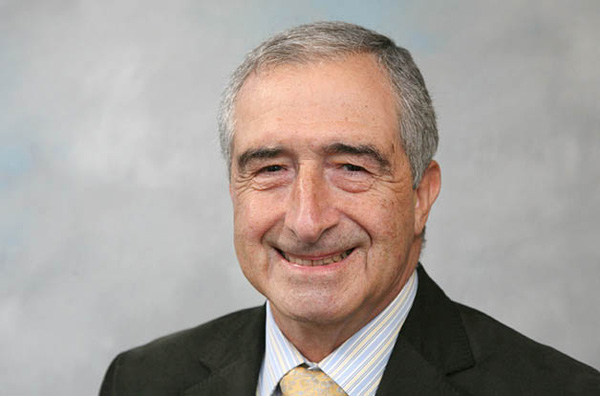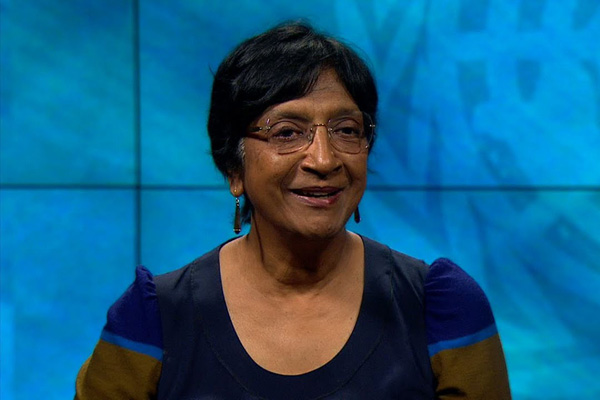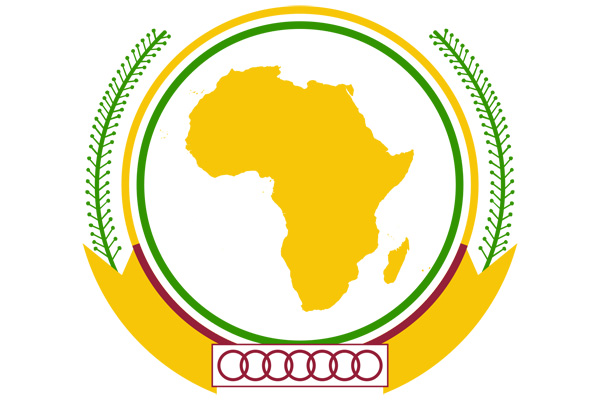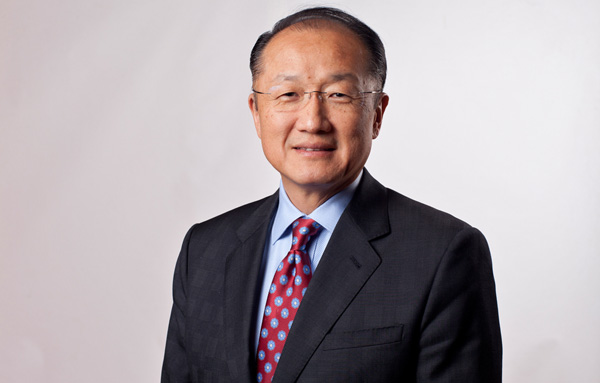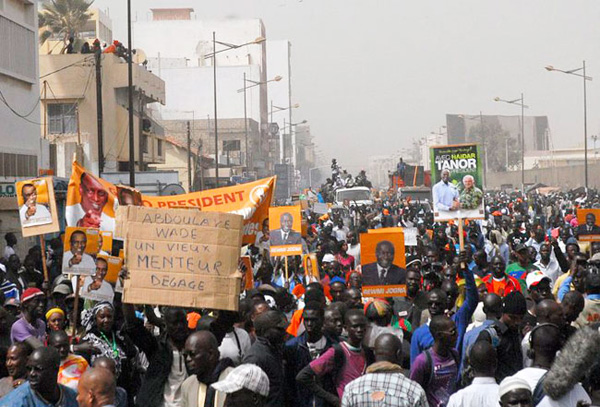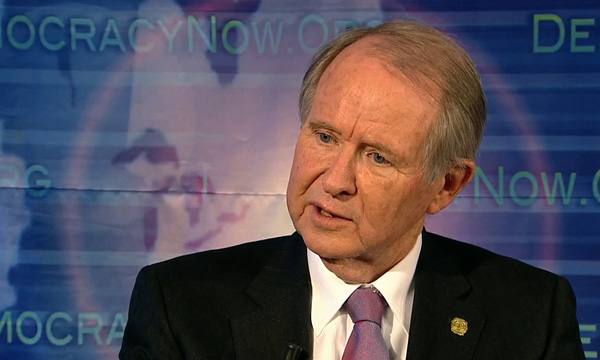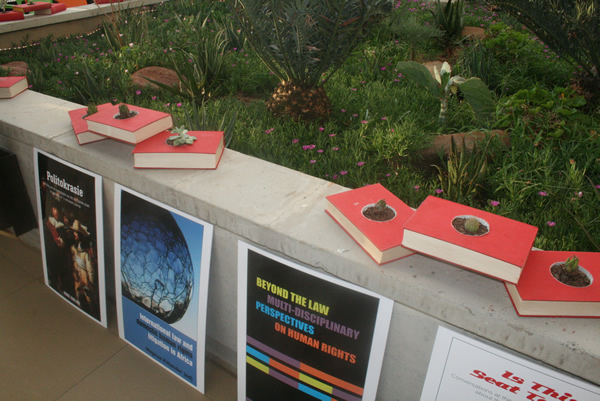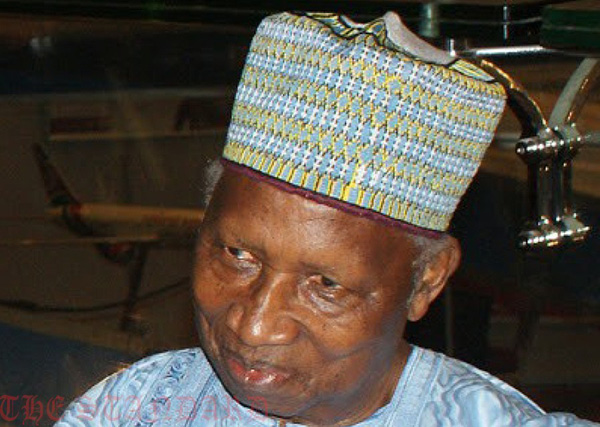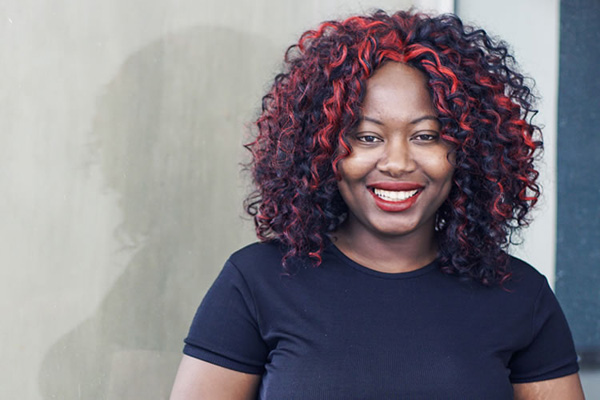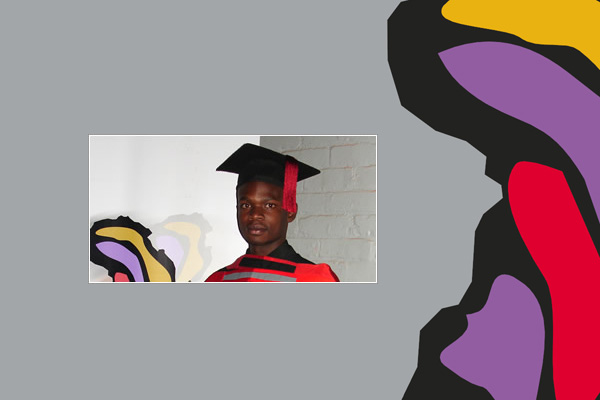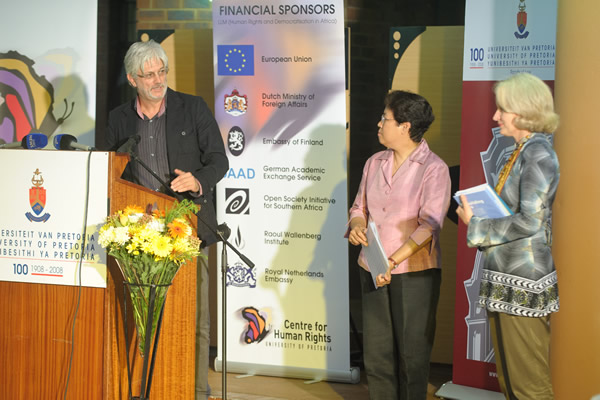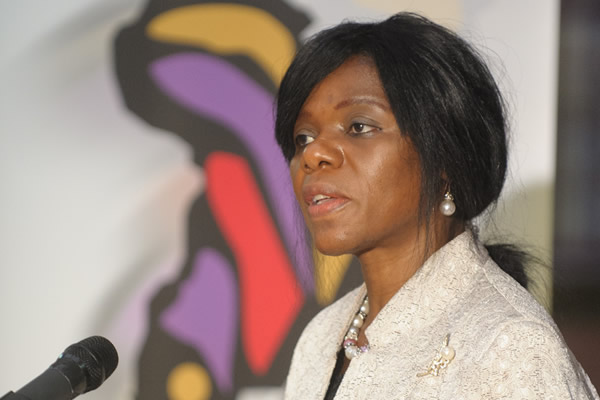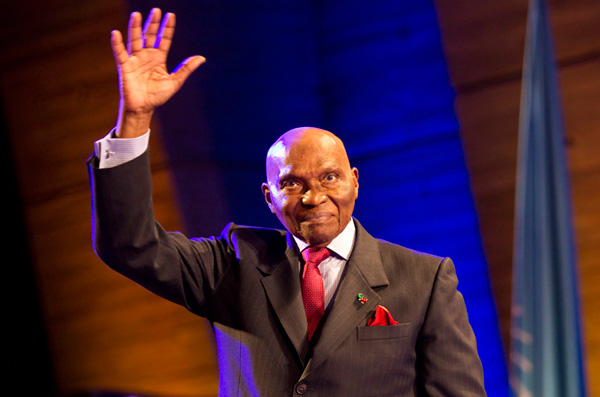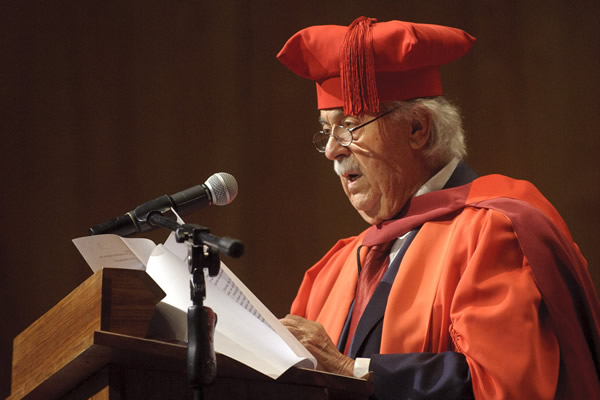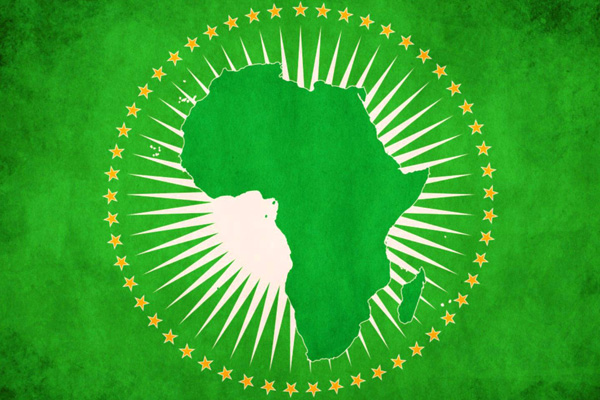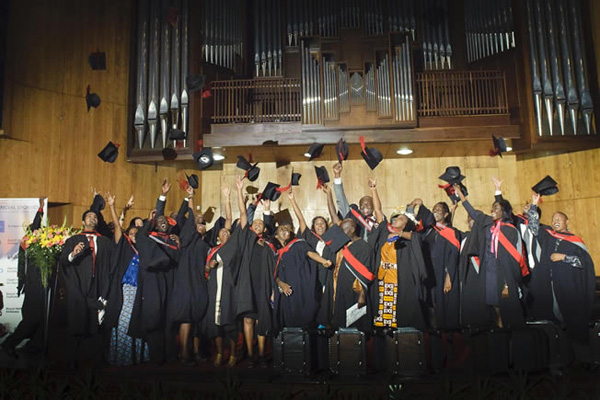- Details
The University of Pretoria held a graduation ceremony on International Human Rights Day (10 December 2012). The graduation ceremony was the culmination of a week of events organised by the Centre for Human Rights which included a conference on ending mass atrocities in Africa, the fourth World Human Rights Moot Court Competition as well as celebrating the African Commission on Human and Peoples’ Rights’ award to the Centre for Human Rights.
At the graduation ceremony 42 students graduated with Masters of Laws degrees while 5 students received doctoral degrees. The following Masters degrees were awarded:
- 29 students graduated from the Master of Laws in Human Rights and Democratisation in Africa
- 12 students graduated with the Master of Laws in International Human Rights Law and HIV in Africa
- One student received a Master of Philosophy in Multi-disciplinary Human Rights
- Details
The Centre for Human Rights in collaboration with the Department of Political Sciences, University of Pretoria, convened an international conference, 6-7 December 2012, under the over-arching theme: ‘Article 4(h) @ 10: How to End Mass Atrocities in Africa.’ The conference was held in commemoration of the fact that it is now 10 years since the coming into force of the Constitutive Act of the African Union. Article 4(h) of the Constitutive Act allows the African Union to intervene in a member state in the face of war crimes, genocide and crimes against humanity. The aim of the conference was to provide an opportunity for academics, judges, practitioners, policy makers, military personnel, government officials, among others, to consider legal, procedural and practical challenges to the implementation of Article 4(h).
- Details
The 4th World Human Rights Moot Court Competition was held from 7 to 10 December at the University of Pretoria, South Africa. The objective of the World Human Rights Moot Court Competition is to promote co-operation and collaboration between law faculties from around the world. It also has the ambition to facilitate exchanges between universities from various backgrounds and legal systems.
The final of the World Moot Competition, for four years now, has become part of the official celebration of the International Human Rights Day on 10 December. The final round was attended by World Moot participants as well as representative of diplomatic missions accredited to South Africa.
- Details
The Gender Unit recently held the Due Diligence Project expert consultative meeting at the Centre for Human Rights from 3- 4 December 2012. The Due Diligence Project is a multi-year project to develop due diligence standards and indicators on State responsibility to end violence against women. It aims to add content to the international legal principle of “due diligence” in the context of State responsibility to address and end violence against women; and to instrumentalise the findings, indicators and good practices for practical application through manuals, tool kits and training modules. The Centre for Human Rights is an institutional partner of the Project, which is implemented by the International Human Rights Initiative based in Boston, USA.
- Details
On the 7th of December 2012 the 4th edition of the World Moot Court Competition began with an exciting and eventful opening ceremony in which the participants expressed their diversity by dressing in their respective countries’ traditional dress. Sixteen teams from the five UN regions were invited to attend the Competition.
After arriving at the university the students registered for the competition where after they attended the opening ceremony in which Professor Frans Viljoen welcomed the students and introduced Mr Marco Kalbusch from the Office of the High Commissioner for Human Rights who was the keynote speaker for the evening. Mr Kalbusch, as well as Professor Frans Viljoen, addressed the students and provided some words of encouragement to the students before embarking on their journey towards the final of the competition. The evening drew to a close after a lovely dinner where all the participants and organisers had a chance to socialise and become more acquainted with each other.
- Details
You are cordially invited to attend the Graduation Ceremony of the 2012 class of the LLM (Human Rights & Democratisation in Africa) programme on international human rights day (10 December).
The keynote speaker at the event is Ms Jane Connors, Chief of Special Procedures, Office of the High Commissioner for Human Rights.
Event details
Date: Monday 10 December 2012
Time: 14:00
Venue: Aula, University of Pretoria
- Details
Senate Hall, Conference Centre, University of Pretoria
6-7 December 2012
The Centre for Human Rights in collaboration with the Department of Political Sciences, University of Pretoria, will convene an international conference, 6-7 December 2012, under the over–arching theme: ‘Article 4(h) @ 10: How to End Mass Atrocities in Africa.’ The conference is being held in commemoration of the fact that it is now 10 years since the coming into force of the Constitutive Act of the African Union, which ushered in a normative change to the pan-African peace and security agenda, particularly regarding the parameters of sovereignty and intervention for humanitarian ends. At the front and centre of this paradigm shift is Article 4(h) of the Constitutive Act, which allows the African Union to intervene in a member state in the face of war crimes, genocide and crimes against humanity.
- Details
The Disability Rights Scholarship Program provides year-long LLM awards to disability rights advocates and lawyers so they can develop the expertise to pursue new legislation, jurisprudence, impact litigation, and scholarship.
With this scholarship, Fellows will have the ability to challenge rights violations in their home countries by drafting enforceable legislation consistent with the United Nations Convention on the Rights of Persons with Disabilities (CRPD), utilizing enforcement mechanisms set forth in the Convention, taking forward disability rights litigation, requesting CRPD-compliant remedies, and engaging in disability rights advocacy.
- Details
Some of the Centre's students particpated in the Documentary Clinic as part of their studies towards the LLM (Human Rights & Democratisation in Africa) programme.
The documentary Changing Lenses: A short film about youth empowerment was the result of the 2012 Documentary Clinic.
As South Africa struggles to rise from the ashes of its Apartheid past, cracking the glass ceiling of extreme socio-economic inequalities using conventional methods has proven to be, at best, a shot in the dark.
As necessity is the mother of invention, people have developed innovative ways of raising awareness through creative ideas and out-of-the-box thinking.
- Details
During its 52nd Session in Yamoussoukro, Ivory Coast, the African Commission on Human and Peoples’ Rights (African Commission) adopted a general comment on article 14(1)(d) and (e) of the Protocol to the African Charter on Human and Peoples’ Rights on the Rights of Women in Africa (African Women’s Protocol, also known as the Maputo Protocol) which provides for women’s human rights in the context of the HIV pandemic.
It is the first time the African Commission has adopted a general comment, which is an interpretive text to clarify the normative content of human rights provisions and the nature and scope of state obligations. General comments have been elaborated in many instances in the UN human rights treaty body system.
- Details
The Centre for Human Rights Gender Unit, with the generous support of UNAIDS, convened an expert working group meeting in Dakar, Senegal from 28 - 29 September 2012 to broaden consultation on the draft general comment on article (14)(1)(d) & (e) of the Protocol to the African Charter on Human and Peoples' Rights on the Rights of Women in Africa.
The general comment elaborates the nature and scope of the provisions in questions and clarifies state obligations towards complying with the identified provisions, namely concerning women's protection from HIV infection and issues related to information, testing and disclosure in line with international human rights standards.
- Details
The African Human Rights Moot Court Competition, now for 21 years a very prominent feature on the calendar for African law faculties, recently celebrated its coming of age.
The 21st African Human Rights Moot Court Competition was held from 1 to 6 October in Maputo, Mozambique.
The Universidade Eduardo Mondlane co-hosted this important human rights competition with the Centre for Human Rights from the University of Pretoria
- Details
The African Commission on Human and Peoples' Rights (ACHPR), the oldest human rights body of the African Union, awarded its first ever NGO Prize for the Promotion and Protection of Human Rights to the Centre for Human Rights of the Faculty of Law, University of Pretoria.
This Prize was awarded on the occasion of the Commission celebrating its 25th birthday, during the opening of its 52nd Ordinary Session in Yamoussoukro, Côte d’Ivoire, on 9 October 2012.
- Details
The Centre for Human Rights: Gender Unit and Institute for Women’s and Gender Studies, with funding from Irish Aid conducted training on gender mainstreaming from the 17th - 21st of September at the University of Pretoria, Faculty of Law.
The participants in this week long training were chosen from various Irish Aid development partners as well as University of Pretoria staff. This training, now in its second year, is geared towards the comprehensive realisation of gender equality in both the public and private spheres.
- Details
The Model Law on Access to Information has been finalised for adoption by the African Commission on Human and Peoples’ Rights (ACHPR), following the meeting of the Model Law Working Group from 6-8 July 2012 in Pretoria, South Africa.
At the Working Group meeting, all comments received electronically and at each of the sub-regional consultations on the Model Law,were considered by members of the Working Group and amendments to the draft Model Law, agreed upon.
- Details
The Centre for Human Rights, Faculty of Law, University of Pretoria, expresses its deep concern and dismay about the killing by members of the South African Police Force of demonstrators on 16 August 2012. Available evidence gives rise to serious questions about the appropriateness and proportionality of the Police response.
The Centre therefore calls on President Zuma to immediately appoint an independent commission of inquiry to investigate the causes and to establish responsibility for the killings. An internal Police or government inquiry would in our view constitute a ‘business as usual’-approach, which is not a suitable response to the extremity of the alarming events.
- Details
The Centre for Human Rights is both honoured and delighted to have hosted Mrs Mary Robinson for a memorable 'fireside chat' in the Sanctuary room, overlooking the Eternal Flame, at Freedom Park in Pretoria last night (7 August 2012).
Mary Robinson is Extraordinary Professor in the Centre for Human Rights and the Centre for the Study of AIDS at the University of Pretoria, both of which were pleased to welcome all guests to Freedom Park.
- Details
The Alberton Magistrates’ Court on Monday 30 July 2012 made an order vindicating the rights of two lesbian women who had lodged a complaint that they were not allowed to publicly celebrate their civil union at Sha-Mani, a privately-owned functions venue and conference centre in Alberton. Sitting as an Equality Court, the Court accepted the agreement between the parties and ordered that Sha-Mani must pay R20 000 to OUT, an NGO working towards gay and lesbian well-being. Sha-mani was also ordered to allow gays and lesbians to hire any of Sha-Mani’s three venues for any purpose, including for weddings.
After the case, the couple, Francis and Liani Buitendag, said: “We really hope this case will help others in the LGBTI community to realise they can stand up against unfair discrimination on the grounds of sexual orientation or gender identity”.
![]() Download this press release in PDF format (English)
Download this press release in PDF format (English)
![]() Laai hierdie persverklaring af in PDF formaat (Afrikaans)
Laai hierdie persverklaring af in PDF formaat (Afrikaans)
- Details
A prominent human rights activist and LGBTI rights defender, Monica Mbaru, has been appointed as a Judge of the Industrial Court and will serve in the Judiciary.
Justice Mbaru Monica Wanjiru was sworn in by President Mwai Kibaki and Chief Justice Willy Mutunga at State House on July 13. Justice Mbaru was among 12 successful candidates who were vetted and selected by the Judicial Service Commission (JSC).
- Details
A panel discussion on accountability and responsibility of international financial institutions was held on 20 June 2012 at the Centre for Human Rights.
The presenters were Prof Jan Wouters from the University of Leuven and Dr Andria Naude-Fourie from Erasmus University, the Netherlands. The panel discussion was moderated by Professor Danny Bradlow, the head of the International Development Law Unit at the Centre for Human Rights.
- Details
The Centre for Human Rights with support from the Solidarity for African Women's Rights Network recently constituted a working group of experts, drawn from various organizations dealing with HIV/AIDS and related matters, at the University of Pretoria.
The Constitution of this group was geared towards the development of guidelines on state obligations relating to women's health and reproductive rights and HIV (Article 14 (1) (d) and (e) of the Protocol to the African Charter on Human and Peoples Rights on the Rights of Women in Africa).
- Details
Following the decision of the ECOWAS Community Court of Justice of 13 March 2012 to adjourn the hearing of the case, RADDHO v Senegal, Case No. ECW/CCJ/APP/03/12, the Court proceeded to hear the matter on 4 May 2012.
The Republic of Senegal was represented by their Counsel, Mr Mafall Fall, while RADDHO’s Chairperson, Alioune Tine and RADDHO’s lawyer, Maître Amadou Kane were also present.
The Centre for Human Rights, which has been the legal and technical adviser of RADDHO in this matter, was represented by Mr Horace Adjolohoun who also acted as lead counsel in this session of the hearing.
- Details
On Wednesday 2 May, Sir Nigel Rodley, Professor at the Human Rights Centre of the University of Essex, member of the United Nations Human Rights Committee and former United Nations Special Rapportuer on Torture presented a public lecture on the UK Human Rights Act.
During a week in Pretoria, Sir Nigel also taught on the LLM programme in human rights and democratisation in Africa as part of a teacher exchange between the Centre for Human Rights and the Human Rights Centre at the University of Essex.
- Details
The Centre for Human Rights at the Faculty of Law, University of Pretoria, invites you to the Annual Helen Kanzira Lecture.
This public lecture on women’s reproductive health rights will be presented by Ms Navi Pillay, United Nations High Commissioner for Human Rights.
The title of the lecture is: "Valuing Women as Autonomous Beings: Women's Sexual and Reproductive Health Rights"
- Details
The Centre for Human Rights, University of Pretoria, has followed with great concern the events that have been unfolding in the Republic of Angola, particularly since David Mendes declared that his political party (Partido Popular) will run against the party of the incumbent President, Jose Eduardo dos Santos, in the upcoming national elections to be held sometime in 2012.
Following Mendes’s declaration of his intention to run in the elections as a competitor to the incumbent President, he has been receiving death threats and had his property and that of the human rights organization (Mãos Livres) and Partido Popular vandalized by unknown persons. The death threats have intensified after he filed a complaint to the Attorney Generals’ Office against the incumbent President accusing him of embezzlement of public funds.
- Details
Roundup of four global experts' views, including that of Danny Bradlow, SARCHI Professor of International Development Law and African Economic Relations in the Faculty of Law, University of Pretoria, on the selection of the new President of the World Bank.
According to the Council on Foreign Relations, the selection of Jim Yong Kim, the U.S. candidate, as the next president of the World Bank has stimulated debate over reform of the institution's governance. Four experts size up the succession process, some judging it a missed opportunity for meaningful change while others seeing a crucial injection of new expertise at the sixty-eight-year-old development body.
- Details
Following the decision of the Constitutional Council of Senegal to endorse President Abdoulaye Wade as a presidential candidate for a third term, RADDHO, a non-governmental organisation based in Dakar, Senegal, lodged a complaint to the ECOWAS Community Court of Justice against the government of the Republic of Senegal on 16 February 2012 cited as case no. ECW/CCJ/APP/03/12.
In bringing the suit, RADDHO enjoyed the support of the Centre for Human Rights, University of Pretoria, which acted as legal and technical advisor.
- Details
The Centre for Human Rights will be hosting a seminar on the Use of Official Languages Bill.
The presenters are:
- Prof Fernand de Varennes
Research professor at the international observatory of linguisic rights, Université de Moncton, Canada, and Convenor of the 13th Conference of the International Academy of Linguistic Law - Prof Koos Malan
Department of Public Law, University of Pretoria
- Details
Professor Christopher John Robert “John” Dugard, Extraordinary Professor of Law in the Centre for Human Rights at the University of Pretoria, will receive one of South Africa’s highest civilian honours, the Order of the Baobab: Gold, in a ceremony conducted by President Jacob Zuma on Freedom Day, 27 April 2012.
The Order of the Baobab is awarded by the President to South African citizens for ‘distinguished service that goes beyond the call of duty’ and for exceptional contributions to the nation.
Prof Dugard will be recognised for his achievements in international law and, in particular, for his efforts in opposition to apartheid, his contributions to the establishment of the rule of law, his work in the field of human rights and his role in the creation of a free and democratic South Africa.
- Details
In 2010, the Faculty of Law, University of Pretoria, received funding from the World Bank to cover the costs of IDF Grant TF 090558: Enhancing Access to Legal Information – a grant between the World Bank and the Faculty of Law. The core activity under this project was the production by the Pretoria University Law Press (PULP) of a series of books on comparative African law, entitled the Rule of Law in Africa Series.
- Details
Julius Osega Memorial Lecture CANCELLED
Unfortunately the Julius Osega Memorial Lecture which was to have been presented by Sir Dawda Jawara has been cancelled for the moment. The Memorial Lecture will take place later in the year, date to be announced.
Due to unforeseen circumstances Sir Dawda Jawara's entourage could not get their visas in time for the flights and he may not travel without them.
We apologise for any inconvenience caused.
The PULP "Rule of Law in Africa Series" Book Launch will, however, still be taking place.
- Details
Satang Nabanech, a 2012 LLM student (Human Rights & Democratisation in Africa) recently won a prize for her paper in AAWORD's essay competition.
The Association of African Women for Research and Development (AAWORD) organises the Advocacy Competition on Gender and Political Participation in Africa.
- Details
It is with great sadness that the Centre for Human Rights learnt of the death of Steve Odero Ouma. Steve was a member of the LLM (Human Rights and Democratisation in Africa) class of 2005. He passed away on 23 February, after having been admitted to hospital. The autopsy revealed that Steve had advanced gastrointestinal cancer and neither surgery or chemotherapy would have saved his life.
In 2005, one of the field trip destinations of the LLM students was Sierra Leone. I was fortunate enough to go with this group, of which Steve was part. On this trip, I got to know him as someone who could be playful and mischievous, but also extremely serious about issues affecting our continent, and as an inquisitive, determined and dedicated student.
- Details
On 10 February, the Regional Office for Southern Africa of the UN High Commissioner for Human Rights (ROSA) launched a Human Rights Resource Centre at the Oliver Tambo Law Library at the University of Pretoria, South Africa.
The inauguration ceremony took place on the occasion of the opening ceremony of the 2012 Class of the LLM in Human Rights and Democratization in Africa, hosted by the Centre for Human Rights of the University of Pretoria.
- Details
South Africa’s Public Protector Thuli Madonsela addressed aspiring human rights lawyers from across the continent at the opening ceremony of the Master of Laws (LLM) in Human Rights and Democratisation in Africa, a programme of the Centre for Human Rights in the Faculty of Law at the University of Pretoria. The ceremony, held on Friday 10 February 2012, was attended by nearly 200 people, including representatives of the United Nations Office of the High Commissioner for Human Rights, members of the diplomatic corps, and members of the senior management of the University of Pretoria.
- Details
The Centre for Human Rights, University of Pretoria, has followed with great concern the events that have been taking place in the Republic of Senegal since the decision of the Constitutional Council, on 27 January 2012, to allow the incumbent, President Abdoulaye Wade, to run for a third term. In our view, it is a contravention of the letter and spirit of the Constitution of Senegal, the Economic Community of West African States (ECOWAS) laws and the President’s own pledge to the Senegalese people.
The Government of Senegal has, despite the legitimate concerns raised by the opposition parties, civil societies as well as a large majority of the citizenry, decreed 26 February 2012 as the date for the presidential election.
![]() Download the press statement (English)
Download the press statement (English)![]() Download the press statement (Français)
Download the press statement (Français)
- Details
The Centre for Human Rights awarded an honorary doctorate degree to Advocate George Bizos SC on 9 December 2011. Advocate Bizos is a distinguished human rights lawyer who campaigned against apartheid in South Africa, most notably during the Rivonia Trial.
Currently associated with the Constitutional Litigation Unit at the Legal Resources Centre, Advocate Bizos delivered his address 'Blame neither the Constitution nor the Courts' during the Spring Graduation Ceremony.
- Details
With the deposit of the fifteenth instrument of ratification by Cameroun on 15 January 2012, the African Charter on Democracy, Elections and Governance (Democracy Charter)is set to enter into force on 15 February 2012, 30 days after the deposit of the last instrument of ratification. The Democracy Charter was adopted by the African Union on 30 January 2007, in Addis Ababa, Ethiopia.
The entry into force of the Democracy Charter means that for the first time, a binding treaty on democracy, elections and governance is in place in Africa, although it will only be binding on the 15 member States that have ratified it. The Democracy Charter is the culmination of successive non-binding instruments adopted by the African Union on democracy, good governance, human rights and development, and reinforces recent initiatives such asthe New Partnership for Africa’s Development (NEPAD) and the African Peer Review Mechanism (APRM).
- Details
The University of Pretoria held a graduation ceremony for the Master of Laws (LLM) in Human Rights and Democratisation in Africa. The ceremony took place at the Musaion on Friday 9 December 2011. All the 30 students who were admitted to the programme in 2011 completed the programme successfully. There were 15 women and 15 men. The students were drawn from 16 African countries.

